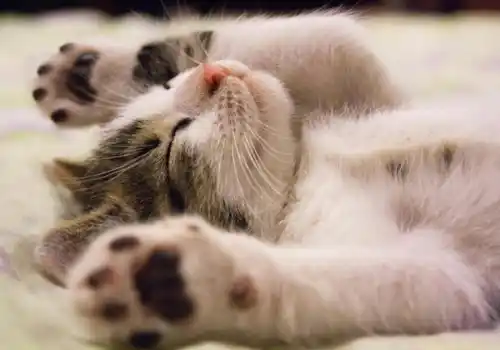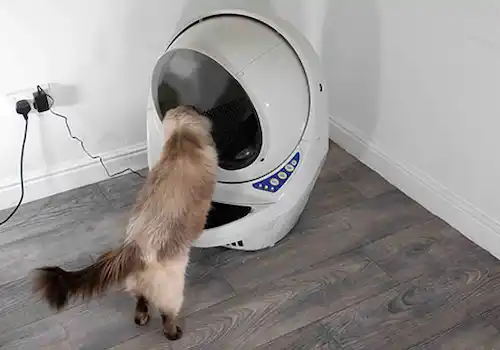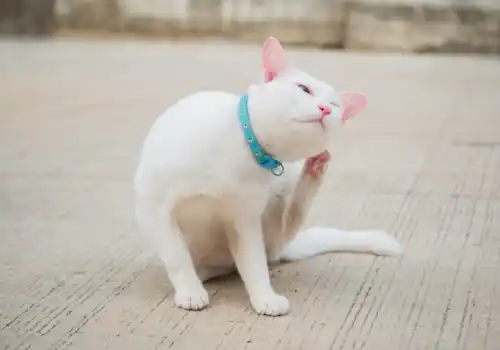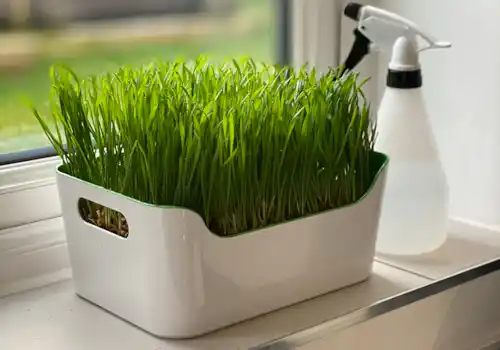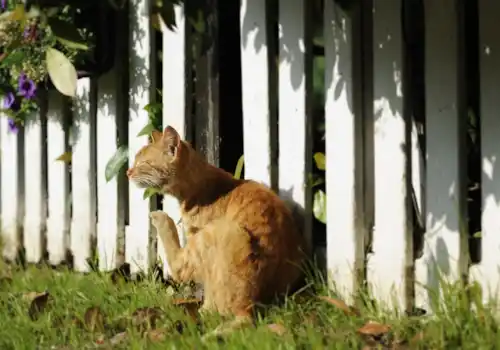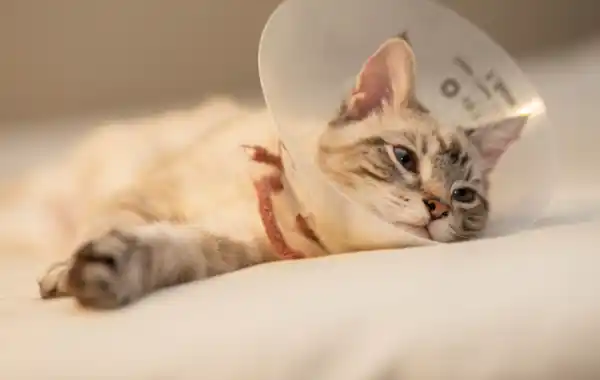When our cats are ill, we rely on our vets to help get them on the mend. But how do we cope practically and emotionally with a poorly puss? Jill Eckersley looks at how we can make the whole situation easier.
Cats are essentially healthy creatures. If you adopt a rescue, the cat you choose will have been carefully vet checked and if there are any health issues that are likely to be on-going, you will be told. If you choose to buy a pedigree cat, it's important to ask the breeder about the health of the mum and dad, and check if there are any particular problems associated with the breed. The same applies if you go to see a litter of kittens in a family — always make sure you see them with mum and don't be afraid to ask questions! However careful you are though, any cat can become ill or, of course, have an accident.
Having a sick kitty is always going to be stressful for a loving owner. Cats can’t tell you what’s wrong or if they’re feeling off colour. If a trip to the vet’s is required you can’t tell them it's for their own good when they are bundled into a carrier and whisked off for treatment! You will be feeling worried and perhaps guilty. If your cat does need a course of treatment or an operation, you will suddenly have to play vet nurse and look after him while he recovers, perhaps dealing with injections, pills, a special diet, and keeping him indoors when he’s used to roaming. It’s a daunting prospect. How can you make it easier on yourself, as well as less stressful for your cat?
Reading the signs
The first thing to remember is that prevention is always better than cure. All cats should be registered with a vet and have their regular vaccinations against the most dangerous feline diseases such as cat flu, feline leukaemia, and feline parvovirus. Kittens can be vaccinated from the age of eight weeks. Annual trips to the vet’s for boosters are also a good opportunity to ask questions about your cat’s health, especially as he gets older, and to raise any concerns that might have been worrying you.
Healthy cats are bright and alert, enjoy their food and use their litter tray without any signs of pain or straining. They may occasionally cough or sneeze, vomit, or have a good scratch, but if any of these behaviours happen often or regularly, it's best to check with your vet.
There’s plenty of information available to cat owners about feline health, but it’s vital to make sure that any information you trust comes from a reliable source. When I was a first-time cat owner, a friend gave me a copy of ‘The RSPCA Complete Cat Care Manual’ written by vet Andrew Edney and published by Dorling Kindersley! As well as using the Your Cat website which has a fantastic range of expert advice, cat welfare organisations, such Cats Protection and the Blue Cross, also have a comprehensive range of advice on their websites and through leaflets.
It isn't always easy to tell if your cat is feeling poorly. Cats are rather good at hiding any signs of pain. When you know your cat, though, you’ll be able to tell when he ‘doesn’t seem himself.’ You obviously don't need to rush off to the vet every time your cat sneezes or throws up a hairball. You do need to know what is normal for your cat, and also what constitutes an emergency. Look out for:
- signs of obvious discomfort, such as hiding away or crying if touched or moved
- inability to move or bear any weight on his limbs
- difficulty in breathing or excessive panting
- severe bleeding
- seizures
- inability, or difficulty, to pass urine
- refusing food for 24 hours or longer
Work with the vet
In any of these situations, don't hesitate to make an appointment with your vet. Taking care of a sick cat is always a partnership between you, the worried owner, and the professionals. Sarah Elliott, Central Veterinary Officer at Cats Protection says: “Vets are well aware how stressful it is for owners to see a beloved moggy struggling and feeling unwell. They are doing their best to help you and your cat… so be nice to your vet!”
Sarah also has some advice to help you get the most from a vet consultation. She says: “Leave your cat in its carrier until the vet is ready,” she says. “Prepare a list of questions and concerns in advance, perhaps writing them down so you don't forget anything. Leave your cat in its carrier while you discuss your concerns with the vet. This will help to keep your cat calm. Be honest with your vet and don't be afraid to ask questions about anything you don't understand, either at the time, or in a phone call afterwards.”
You may be able to take your cat home straight away or it may have to be kept with the vet or in a veterinary hospital for more tests or an operation. If that’s the case, you will be kept informed. Do ask the vet if they will call you, or if you need to make the call to check on your cat’s progress.
Of course, you’ll want your cat to come home to you as soon as possible. On the other hand, you know he is being well cared for by the experts and when you are allowed to bring him home, there are more worries.
The vet or hospital will send you home with plenty of information about aftercare, plus the medication your cat needs to ensure it recovers well. You will find it helpful to make a daily schedule of the medication so that you know which treatments are to be given when — even if you just jot down ‘pink pills every six hours’ or ‘syringe of medication mixed with dinner at 6 pm’ or whatever it may be.
Post-operation care
If your cat has had an operation, they will need that little extra TLC. Here are the top tips of how to help your cat to recover after an op:
- Make sure your cat has a quiet area to sleep in where he is not disturbed
- Don't worry if he is extra sleepy or off his food at first
- Stick to a light diet of chicken or fish, and always provide fresh water
- Keep him indoors until he has fully recovered
- He may have to wear an ‘elizabethan collar’ to stop him worrying or licking his wound
- Look out for any swelling or excess bleeding from the wound and contact the vet if you're worried.
Grooming and stroking a sick cat can be soothing for the cat — and for you! It is also suggested that you make sure all boxes, bottles, and syringes are ready for use before your kitty sees them in case he tries to escape. Some cats need to be wrapped in a towel while medication is administered. There are online videos showing owners how to give a cat a pill and I would also recommend a product called Easy Pill, obtainable from your vet. It’s a paste you can hide a pill in to make it more palatable. It’s also worth keeping an eye on your cat for a few moments after he has swallowed his pill in case he spits it out. It can be daunting when you first have to treat your poorly puss but you do get better with practice!
And what about you, the owner? There’s no getting away from it, having a very sick cat is always going to be stressful and vets are well aware of this. Just like your cat, you may be unable to sleep and lose your appetite. Any stress-beating techniques you have used before are worth remembering at this difficult time. First of all, don’t panic. You are doing your very best for your cat by trusting it to the vet and being guided by what they tell you. You are unlikely to be able to relax completely until you know that your feline companion is really on the mend, but in the meantime, you should do whatever it takes to keep calm and focussed. If a run, a swim, or a gym workout normally relaxes you, go for it. On the other hand, if you usually rely on a hot bath and a glass of wine, or a cuppa and a good book, to take your mind off your troubles, then go for that! Confide in a friend, preferably another cat lover who will, most probably, have gone through something similar. Be good to yourself and know that you have done absolutely everything you can to help your feline friend recover.

